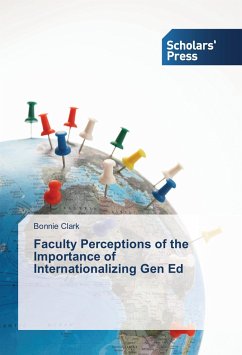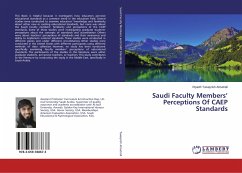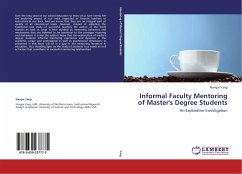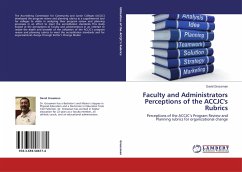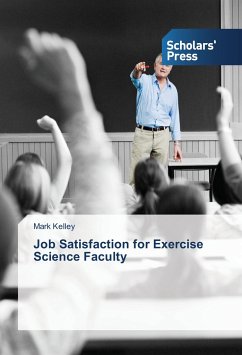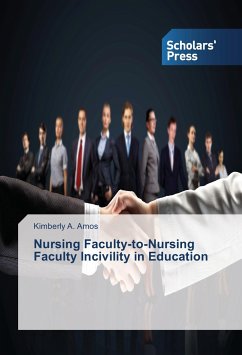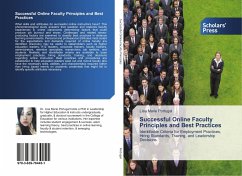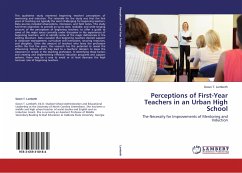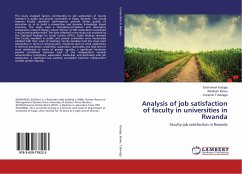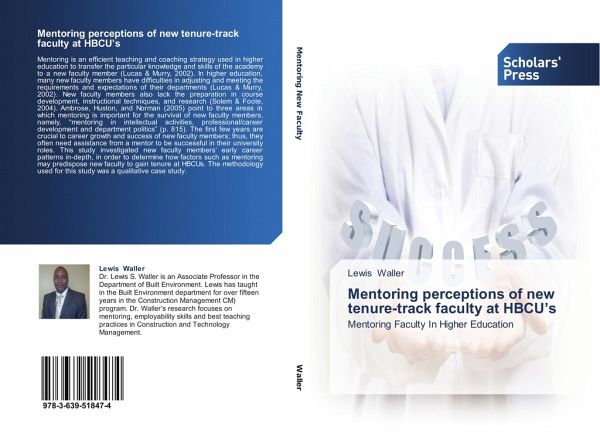
Mentoring perceptions of new tenure-track faculty at HBCU's
Mentoring Faculty In Higher Education
Versandkostenfrei!
Versandfertig in 6-10 Tagen
45,99 €
inkl. MwSt.

PAYBACK Punkte
23 °P sammeln!
Mentoring is an efficient teaching and coaching strategy used in higher education to transfer the particular knowledge and skills of the academy to a new faculty member (Lucas & Murry, 2002). In higher education, many new faculty members have difficulties in adjusting and meeting the requirements and expectations of their departments (Lucas & Murry, 2002). New faculty members also lack the preparation in course development, instructional techniques, and research (Solem & Foote, 2004). Ambrose, Huston, and Norman (2005) point to three areas in which mentoring is important for the survival of ne...
Mentoring is an efficient teaching and coaching strategy used in higher education to transfer the particular knowledge and skills of the academy to a new faculty member (Lucas & Murry, 2002). In higher education, many new faculty members have difficulties in adjusting and meeting the requirements and expectations of their departments (Lucas & Murry, 2002). New faculty members also lack the preparation in course development, instructional techniques, and research (Solem & Foote, 2004). Ambrose, Huston, and Norman (2005) point to three areas in which mentoring is important for the survival of new faculty members, namely, mentoring in intellectual activities, professional/career development and department politics (p. 815). The first few years are crucial to career growth and success of new faculty members; thus, they often need assistance from a mentor to be successful in their university roles. This study investigated new faculty members early career patterns in-depth, in order todetermine how factors such as mentoring may predispose new faculty to gain tenure at HBCUs. The methodology used for this study was a qualitative case study.



